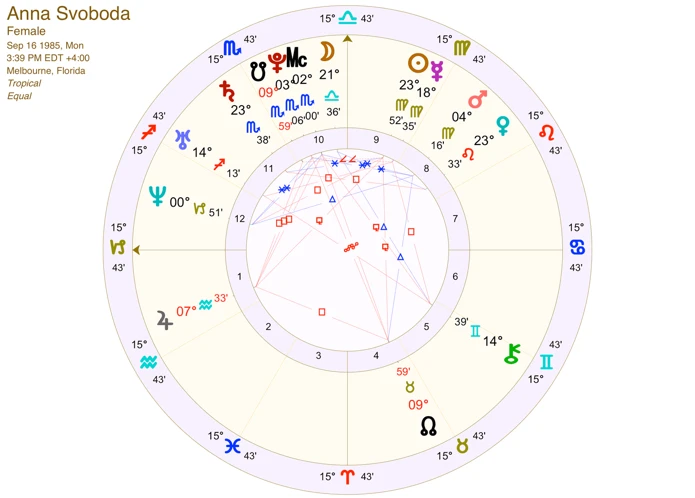The Moon holds a mysterious and captivating influence over our lives, affecting our emotions, actions, and even our destiny. In astrology, the placement of the Moon in our natal charts plays a vital role in shaping our personality and emotional well-being. By analyzing the Moon’s significance in the natal chart, we can gain a deeper understanding of ourselves and the world around us. From emotional expression to relationships and personal growth, the Moon’s position reveals invaluable insights into our innermost desires and vulnerabilities. In this article, we will delve into the importance of the Moon in natal charts, exploring its intricate connections to our emotional landscape and uncovering the transformative power it holds. So, grab your celestial map and embark on a journey to decode the secrets of the Moon in your natal chart.
The Basics of Natal Charts
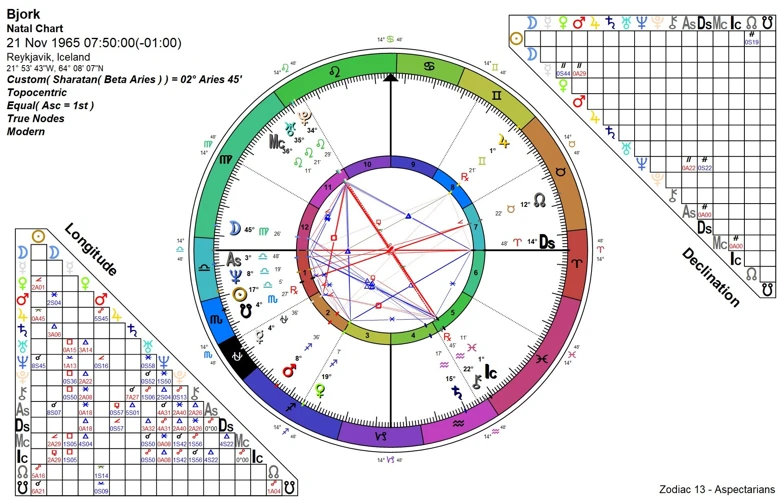
A natal chart, also known as a birth chart, is a symbolic representation of the celestial positions at the exact moment of an individual’s birth. It is a snapshot of the sky and acts as a cosmic blueprint for one’s life. A natal chart includes various elements, such as the positions of the Sun, Moon, and planets at the time of birth. Each celestial body holds a unique significance in the chart, offering insights into different aspects of an individual’s personality and life experiences. The natal chart is divided into twelve houses, each representing different areas of life, from career and relationships to spirituality and personal growth. By interpreting the placements and aspects in a natal chart, we can understand the intricate interplay between celestial energies and how they shape our lives. To dive deeper into the importance of the Sun in natal charts, check out our article on the Sun’s influence.
In astrology, the Moon symbolizes our emotions, instincts, and deeply ingrained patterns of behavior. It represents our emotional needs, how we nurture ourselves and others, and our instinctual reactions to the world. The Moon governs our subconscious mind and connects us to our ancestral lineage. In a natal chart, the zodiac sign and house placement of the Moon reveal crucial information about an individual’s emotional landscape and inner world. It influences our intuitive abilities, our capacity to empathize with others, and our sensitivity to the energies around us. Understanding the Moon’s placement in your natal chart can help you delve into your emotional patterns and gain insights into how to navigate your emotions with grace and understanding. To gain a broader understanding of the significance of natal charts in astrology, read our article on understanding the significance of natal charts in astrology.
1.1 Understanding Natal Charts
Understanding natal charts is the key to unlocking the profound insights they offer. To begin comprehending the complexities of natal charts, it is important to familiarize oneself with the foundational elements. The natal chart is essentially a map of the sky at the moment of an individual’s birth, depicting the positions of the Sun, Moon, planets, and other celestial bodies. These placements are specific to the date, time, and location of birth, making each natal chart unique and highly personal. By examining the relationships between these celestial bodies, astrologers can decipher the individual’s personality traits, strengths, challenges, and life potentialities. Interpreting planetary aspects within the natal chart is an integral part of understanding the dynamics of an individual’s life. These aspects represent the interactions between the planets and offer valuable insights into one’s character, motivations, and patterns of behavior. They help astrologers identify the harmonious or challenging energies at play in a person’s life and provide guidance for personal growth and self-awareness. To dive deeper into the art of interpreting planetary aspects, check out our article on interpreting planetary aspects.
1.2 The Moon in Astrology
In astrology, the Moon holds immense importance as it represents our emotions, instincts, and subconscious mind. It governs our moods, reactions, and the way we nurture ourselves and others. The Moon in astrology reflects our deepest emotional needs and how we seek security and comfort. Understanding the placement of the Moon in our natal charts is crucial for gaining insight into our emotional well-being and understanding our intuitive abilities. The zodiac sign in which the Moon is located sheds light on our emotional nature and how we express our feelings. For example, a Moon in Cancer signifies a nurturing and empathetic individual, while a Moon in Aries may indicate a more assertive and passionate emotional style. The house placement of the Moon reveals the area of life where our emotional needs are particularly emphasized. For instance, a Moon in the 7th house may indicate that relationships and partnerships play a significant role in fulfilling our emotional needs. By analyzing the Moon’s placement in our natal charts, we can gain a deeper understanding of our emotional landscape and develop strategies to nurture and care for ourselves with more clarity and intentionality.
Interpreting the Moon Sign
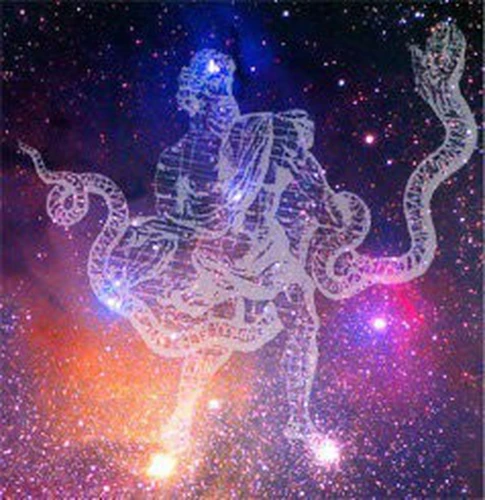
Interpreting the Moon sign in a natal chart provides valuable insights into an individual’s emotional expression, relationships, and inner emotional world. The Moon sign represents how we naturally respond to and express our feelings. It reflects our emotional needs and influences the way we relate to others, as well as how we seek emotional fulfillment. Each zodiac sign has its own unique qualities and characteristics, and when the Moon is in a particular sign, those qualities color our emotional experiences. For example, someone with a Moon in fiery Aries may have a bold and passionate approach to their emotions, while someone with a Moon in nurturing Cancer may be more sensitive and protective. Understanding your Moon sign can help you embrace and work with your emotional nature, fostering healthier relationships and personal growth. To take your interpretation a step further, consider examining the aspects that the Moon makes with other planets in your chart. These planetary aspects can provide additional layers of meaning and shed light on how your Moon sign interacts with other areas of your life. For a deeper understanding of the complexities of planetary aspects, check out our article on interpreting planetary aspects.
2.1 Emotional Expression
Emotional expression is a fundamental aspect influenced by the Moon’s placement in a natal chart. The Moon represents our emotional nature and how we communicate and express our feelings. The zodiac sign in which the Moon is located brings a specific flavor to our emotional reactions and the way we express ourselves. For example, individuals with a Moon in fire signs (Aries, Leo, Sagittarius) tend to express their emotions with passion, enthusiasm, and a sense of urgency. They may be more impulsive and direct in their emotional expression. On the other hand, those with a Moon in earth signs (Taurus, Virgo, Capricorn) may have a more practical and grounded approach to emotions, expressing them in a stable and reliable manner. Moon in air signs (Gemini, Libra, Aquarius) tends to express emotions in a cerebral and intellectual way, seeking communication and understanding. Lastly, Moon in water signs (Cancer, Scorpio, Pisces) leads to a more sensitive and intuitive emotional expression, often influenced by the ebb and flow of their emotions. It’s essential to remember that other factors, such as aspects and house placement, further shape an individual’s emotional expression. By understanding and embracing our unique emotional style, as indicated by the Moon in our natal chart, we can navigate our relationships and interactions with a deeper sense of self-awareness.
2.2 Relationships and Compatibilities
When it comes to relationships and compatibilities, the Moon in our natal charts plays a significant role. The Moon symbolizes our emotional needs and instincts, and it greatly influences how we connect with others on an emotional level. The zodiac sign and house placement of the Moon provide insights into our emotional compatibility with different individuals. For example, someone with a Moon in a fire sign like Aries may be drawn to partners who can match their fiery passion and spontaneity. On the other hand, a person with a Moon in an earth sign like Taurus may seek stability and practicality in their relationships. Additionally, the aspects that the Moon forms with other planets in the natal chart can also shed light on the dynamics and challenges within relationships. Harmonious aspects, such as a Moon trine Venus, may indicate a natural flow of emotions and compatibility, while challenging aspects, like a Moon square Mars, may point to potential conflicts and power struggles. So, understanding the Moon’s placement and aspects in our natal chart can help us navigate relationships and find emotional compatibility with others. For more information on interpreting planetary aspects, check out our article on interpreting planetary aspects.
2.3 Inner Emotional World
The Moon’s placement in a natal chart provides valuable insights into an individual’s inner emotional world. This includes their deepest needs, instinctive reactions, and vulnerabilities. The Moon represents the emotional core and innermost feelings that guide our actions and choices. Depending on the zodiac sign and house placement, the Moon reveals how we process and express our emotions, as well as how we seek emotional fulfillment and security.
Here are some key points to consider when exploring the inner emotional world of an individual through the Moon in their natal chart:
1. Moon Sign: The Moon’s zodiac sign indicates how an individual experiences and expresses their emotions. For example, someone with a Moon in a water sign like Cancer may have heightened emotional sensitivity and deep emotional connections, while someone with a Moon in a fire sign like Aries may have a more impulsive and passionate emotional nature.
2. House Placement: The house placement of the Moon points to the areas of life where an individual seeks emotional fulfillment and security. For instance, a person with the Moon in the 5th house may find emotional fulfillment through creativity, romance, and self-expression, while someone with the Moon in the 10th house may find emotional security through professional achievements and public recognition.
3. Aspect to Other Planets: The Moon’s aspects to other planets in the natal chart further emphasize and shape an individual’s emotional landscape. Harmonious aspects, such as trines and sextiles, indicate natural flow and ease in emotional expression, while challenging aspects, like squares and oppositions, may signify inner conflicts or emotional tensions.
4. Lunar Phases: The Moon’s phase in the natal chart reveals the overall emotional tone and lessons an individual carries throughout their life. For example, someone born during a Full Moon may have a heightened need for emotional balance and integration, while someone born during a New Moon may have a strong drive for self-discovery and initiating new emotional beginnings.
Understanding the inner emotional world of an individual through their Moon placement can provide valuable insights into their emotional needs, patterns, and ways to find emotional fulfillment. By nurturing and honoring our Moon’s energy, we can cultivate emotional well-being and live authentically in alignment with our deepest emotions. For a broader understanding of interpreting planetary aspects in a natal chart, refer to our article on interpreting planetary aspects.
Influence on Personality Traits
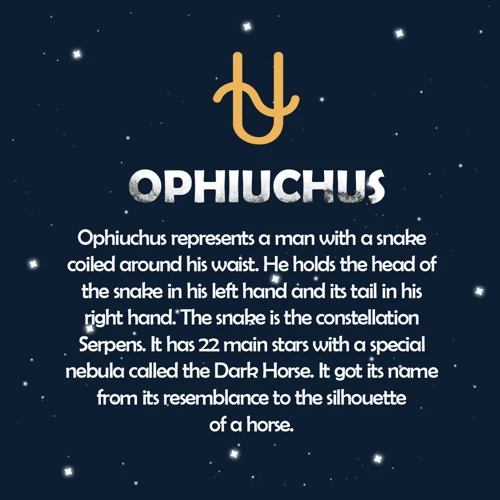
The Moon’s placement in our natal chart has a profound impact on our personality traits and characteristics. One of the key influences of the Moon is its ability to enhance sensitivity and intuition. Individuals with a prominent Moon placement tend to be highly attuned to their emotions and the emotions of others. They possess a deep sense of empathy and are often drawn to nurturing and caring roles. The Moon also brings about a sense of changeability and mood swings in individuals. People with Moon influences may experience fluctuations in their emotional state, experiencing highs and lows throughout their lives. This innate emotional variability allows for adaptability and a deep understanding of the constantly shifting nature of life. The Moon’s influence encourages individuals to nurture and care for others. They possess a natural ability to provide emotional support to those around them, often seeing the needs of others before their own. This nurturing trait creates a strong sense of connection in relationships and fosters deep levels of emotional intimacy. The Moon’s influence on personality traits cannot be understated, as it shapes our emotional landscape and impacts our interactions with the world around us.
3.1 Sensitivity and Intuition
Sensitivity and intuition are key traits associated with the Moon in a natal chart. The Moon’s placement reveals how in tune an individual is with their emotions and the subtle energies around them. Those with a strong Moon placement tend to be highly sensitive and empathetic, able to pick up on the emotions and needs of others effortlessly. Their intuitive abilities are heightened, allowing them to navigate life with a deep understanding of their own emotions and the emotions of those around them. The Moon’s influence can manifest in different ways, depending on its placement and aspects. For example, individuals with a Moon in water signs (Cancer, Scorpio, Pisces) are known for their heightened emotional sensitivity, while those with a Moon in air signs (Gemini, Libra, Aquarius) may have more intuitive insights that are connected to their mental and intellectual processes. By understanding and embracing these qualities, individuals can harness their sensitivity and intuition to navigate life with greater authenticity and emotional intelligence.
3.2 Nurturing and Caring Tendencies
Nurturing and caring tendencies are strongly influenced by the placement of the Moon in a natal chart. The Moon represents our maternal instincts and how we express love and care for ourselves and others. Individuals with a strong emphasis on nurturing in their chart tend to be naturally empathetic and compassionate. They have a deep understanding of the emotional needs of those around them and are apt at offering support and comfort. People with a prominent Moon placement often find fulfillment in nurturing and taking care of others, whether it be through physical affection, providing emotional support, or creating a safe and nurturing environment. Their ability to intuitively sense other people’s emotional states allows them to connect deeply and offer a sense of security and understanding. These individuals may feel a strong desire to create a loving and harmonious home environment, where everyone feels cared for and emotionally supported. Their nurturing nature also extends to themselves, as they prioritize self-care and take time to cater to their emotional needs. By understanding and embracing their nurturing tendencies, individuals with a prominent Moon placement can bring immense comfort and love into their own lives and the lives of those they care for.
3.3 Changeability and Mood Swings
The Moon’s placement in a natal chart can shed light on an individual’s moods and emotional fluctuations. Those with a strongly influenced Moon often experience a heightened sense of changeability and mood swings. This can manifest as sudden shifts in emotions, from intense happiness to deep sadness, and everything in between. The Moon’s energy is receptive and reflective, meaning it absorbs and mirrors the emotions of those around it. As a result, individuals with a prominent Moon placement may find themselves easily influenced by external factors and people. This sensitivity can lead to frequent changes in their emotional state, making it important for them to prioritize self-care and emotional stability. Learning to recognize and manage these mood swings can help individuals with a significant Moon placement find balance and emotional well-being in their lives.
The Moon and Emotional Well-being
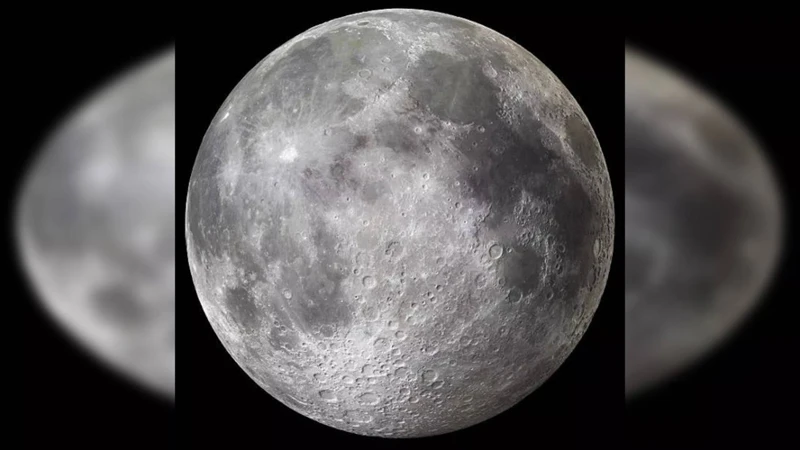
One of the most significant aspects of the Moon in a natal chart is its impact on emotional well-being. The Moon’s placement reveals valuable insights into an individual’s emotional stability, ability to manage stress and anxiety, and their pursuit of emotional fulfillment.
The Moon in the natal chart serves as a barometer for emotional stability. A strong Moon placement indicates emotional resilience and a balanced approach to challenges. Individuals with a well-placed Moon are more likely to navigate through life’s ups and downs with ease, maintaining a stable emotional state.
The Moon also plays a vital role in how individuals handle stress and anxiety. Its placement and aspects in the chart provide valuable information about an individual’s coping mechanisms and emotional responses to challenging situations. Understanding the Moon’s influence can help individuals develop effective strategies for managing stress, promoting self-care, and cultivating emotional well-being.
Emotional fulfillment is a fundamental aspect of overall well-being, and the Moon’s placement in the natal chart sheds light on an individual’s pursuit of emotional satisfaction. It reveals their deepest emotional needs, what brings them a sense of comfort and security, and where they can find emotional fulfillment. By aligning their actions with their Moon sign, individuals can work towards fostering emotional well-being and finding greater fulfillment in their lives.
The Moon’s influence on emotional well-being is complex and multifaceted. It is important to explore all aspects of the Moon’s placement in the natal chart and understand how it intersects with other planetary energies. By embracing and working with the energy of the Moon, individuals can cultivate a healthier and more fulfilling emotional landscape, allowing for a greater sense of peace and well-being.
4.1 Emotional Stability
Emotional stability plays a significant role in our overall well-being and the ability to navigate life’s challenges with resilience. In a natal chart, the placement of the Moon provides insights into an individual’s emotional stability and how they handle different emotions. Strong and harmonious aspects involving the Moon can indicate a stable and grounded emotional nature. Individuals with this aspect tend to have a steady and balanced approach to their emotions, staying calm even in the face of adversity. They are likely to possess excellent emotional regulation skills, allowing them to navigate ups and downs with ease. On the other hand, challenging aspects involving the Moon, such as squares or oppositions, can indicate a more volatile emotional nature. These individuals may experience fluctuations in their moods and emotional stability, making it important for them to pay attention to self-care practices and emotional well-being. It is essential to note that emotional stability is not fixed but can fluctuate throughout one’s life. By understanding the Moon’s influence on emotional stability in the natal chart, individuals can work towards cultivating a greater sense of balance and finding strategies to support emotional well-being.
4.2 Managing Stress and Anxiety
Managing stress and anxiety is essential for maintaining emotional well-being, and the placement of the Moon in our natal chart can provide valuable insights into how we can best cope with these challenges. Individuals with a strong Moon placement often have a heightened sensitivity and intuitive awareness, which can make them more susceptible to stress and anxiety. However, understanding how the Moon influences our emotional responses can empower us to develop effective strategies for managing these feelings.
One approach to managing stress and anxiety is to create a nurturing and supportive environment. Since the Moon represents our need for security and emotional comfort, individuals with a prominent Moon placement may find solace in creating a peaceful and harmonious space. This can include surrounding oneself with soothing music, calming scents, and comforting objects that evoke a sense of emotional well-being.
Another important aspect of managing stress and anxiety is self-care. The Moon influences how we nurture ourselves, and individuals with a strong Moon placement may find relief through practices such as journaling, meditation, or engaging in activities that bring them joy and emotional fulfillment. By prioritizing self-care and honoring our emotional needs, we can create a foundation of resilience and inner strength.
Additionally, seeking support from loved ones and engaging in healthy communication can be beneficial for managing stress and anxiety. The Moon is closely associated with our relationships and the way we connect with others on an emotional level. Sharing our feelings and concerns with trusted individuals can help alleviate the burden of stress and anxiety and provide a sense of support and understanding.
It’s essential to remember that managing stress and anxiety is a personal journey, and what works for one person may not work for another. It is crucial to listen to your own intuition and pay attention to the subtle emotional shifts and cues that the Moon signifies in your natal chart. By exploring different coping mechanisms, individuals can find the tools and strategies that resonate with their unique emotional needs, allowing them to cultivate emotional well-being and balance in their lives.
4.3 Finding Emotional Fulfillment
Finding emotional fulfillment is a vital aspect of leading a balanced and contented life. In astrology, the Moon plays a significant role in guiding us towards emotional satisfaction. The placement of the Moon in our natal charts can provide insights into the things that bring us emotional fulfillment and happiness. For example, if the Moon is in a water sign like Cancer or Pisces, emotional fulfillment may be found through deep connections with loved ones, nurturing others, or engaging in creative pursuits. On the other hand, if the Moon is in an air sign like Gemini or Aquarius, emotional fulfillment may come from intellectual stimulation, social connections, or engaging in humanitarian causes. The Moon’s aspects and house placement further refine the search for emotional fulfillment, allowing us to understand which areas of life are most closely tied to our emotional well-being. By analyzing the Moon’s placement and aspects in our natal chart, we can make conscious choices that lead us towards emotional fulfillment and create a life that aligns with our deepest emotional needs.
The Moon’s Transits and Progressions
The Moon’s transits and progressions play a significant role in shaping our lives and personal growth. Transits refer to the current placement of the Moon in relation to our natal chart, while progressions represent the gradual movement of the Moon throughout our lives. These movements bring about different energies and experiences that influence our emotional well-being and personal development.
During a transit, when the Moon aligns with specific planets or points in our natal chart, it activates corresponding themes and emotions. For example, if the Moon transits over our natal Venus, we may experience a surge of romantic feelings or a heightened desire for connection and harmony in our relationships. These transits often bring about temporary influences and opportunities for growth.
Progressions, on the other hand, reflect the internal evolution of our emotional world. As the Moon gradually moves through our chart, it signifies our emotional development and maturation. For instance, progressing from a natal Moon in Aries to a Moon in Taurus may indicate a shift from impulsive emotional reactions to a more grounded and patient approach. Progressions unfold gradually over time, highlighting key milestones and transformative phases in our emotional journey.
Understanding the Moon’s transits and progressions allows us to be more aware of the emotional energies at play. By tracking these movements and considering the aspects they make to other planets, we can gain valuable insights into the cosmic forces shaping our emotions and personal growth. Exploring how the Moon interacts with other planets during transits and progressions is a compelling way to deepen our self-awareness and navigate life’s transformative cycles. To learn more about interpreting planetary aspects and their impact on the natal chart, check out our article on interpreting planetary aspects.
5.1 Transformational Phases
Transformational phases of the Moon refer to the different lunar phases that occur throughout the month. These phases include the New Moon, Waxing Crescent, First Quarter, Waxing Gibbous, Full Moon, Waning Gibbous, Third Quarter, and Waning Crescent. Each phase represents a unique energy and holds significance in personal growth and transformation. The New Moon marks the beginning of the lunar cycle, symbolizing new beginnings and setting intentions for the month ahead. As the Moon progresses through its phases, it mirrors the ebb and flow of life, representing growth, manifestation, release, and reflection. The Full Moon is a time of culmination and heightened emotions, often bringing clarity and illumination to certain areas of our lives. During Third Quarter and Waning Crescent phases, we may experience a sense of release and letting go, making way for new opportunities and growth. Understanding the energetic qualities of each lunar phase in relation to our natal Moon placement can provide valuable insights into the cyclical nature of life and assist in personal transformation and self-development.
5.2 Evolution and Personal Growth
Evolution and personal growth are fundamental aspects of human existence. In the context of the Moon’s transits and progressions, these concepts take on a whole new level of significance. The Moon’s transits refer to its current position in the sky and its alignment with the planets in a natal chart. These transits indicate periods of emotional intensity and change, offering opportunities for personal growth and transformation. As the Moon moves through the zodiac, it activates different areas of our lives, prompting us to evolve and adapt. It can bring forth new experiences, challenges, and emotions that push us outside of our comfort zones. By understanding the Moon’s transits, we can navigate these cycles with consciousness and intention. Progressions, on the other hand, refer to the movement of the Moon in our natal chart over time. They signify internal shifts and milestones in our emotional development. Progressed Moon aspects and placements can shed light on the themes and lessons we need to focus on during specific periods of our life. It is a reflection of our evolving emotional needs and desires. By carefully analyzing the Moon’s transits and progressions, we gain insight into the evolutionary journey of our souls, unveiling the depths of our emotional healing and personal growth.
Conclusion
In conclusion, the Moon in natal charts holds immense importance in astrology. It acts as a guiding force, shaping our emotions, relationships, and personal growth. By analyzing the Moon’s placement, we can gain valuable insights into our emotional expression, nurturing tendencies, and overall well-being. The Moon’s influence on our personality traits, such as sensitivity and intuition, provides a deeper understanding of ourselves and our interactions with the world. Moreover, the Moon plays a significant role in our emotional stability, stress management, and finding emotional fulfillment. Its transits and progressions mark transformative phases and opportunities for personal growth. The Moon’s intricate connections to our emotional landscape are unveiled through the analysis of natal charts. So, embrace the enchanting influence of the Moon in your own natal chart, and embark on a journey of self-discovery and emotional understanding.
Frequently Asked Questions
1. What is the purpose of a natal chart?
A natal chart serves as a cosmic blueprint, providing insights into an individual’s personality traits, life experiences, and potential paths of growth.
2. How is a natal chart created?
A natal chart is created using the exact date, time, and location of an individual’s birth. This information is used to calculate the positions of celestial bodies at the time of birth.
3. What does the Moon represent in a natal chart?
The Moon symbolizes our emotions, intuition, and instincts. It sheds light on our emotional needs, how we nurture ourselves and others, and our reactions to the world.
4. How does the Moon influence relationships?
The placement of the Moon in a natal chart reveals how an individual experiences and expresses emotions in relationships. It describes their emotional compatibility and what they need from their partners.
5. Can the Moon’s placement in a natal chart change?
No, the placement of the Moon in a natal chart remains fixed throughout an individual’s life. However, the Moon’s transits and progressions can add layers of influence and personal growth over time.
6. How does the Moon affect intuition?
The Moon’s placement in a natal chart influences an individual’s intuitive abilities. It dictates their sensitivity to energy, psychic insights, and ability to tap into their subconscious mind.
7. What can the Moon in a natal chart reveal about emotions?
The Moon in a natal chart reveals an individual’s emotional landscape, including their emotional strengths, vulnerabilities, and how they respond to challenging situations.
8. Can the Moon in a natal chart indicate mood swings?
Yes, the Moon’s placement can indicate an individual’s tendency towards mood swings and emotional fluctuations. It sheds light on their emotional stability or lack thereof.
9. How does the Moon influence self-care and nurturing?
The Moon in a natal chart reflects an individual’s approach to self-care and nurturing themselves and others. It reveals their emotional needs and how they seek comfort and security.
10. What are the Moon’s transits and progressions?
Moon transits refer to the movement of the Moon as it interacts with different planets in the sky, creating short-term influences. Progressions, on the other hand, represent the gradual shift of the Moon’s placement as an individual ages.

